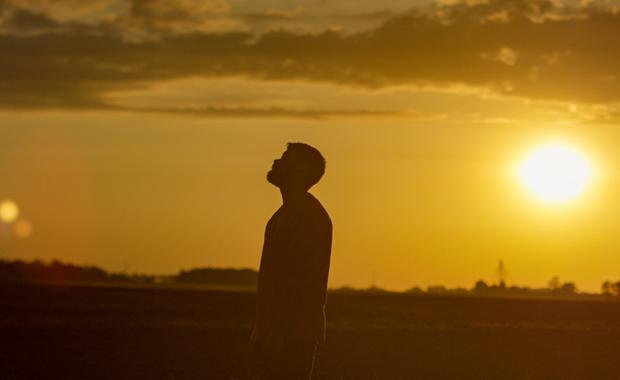Success Advice
How to Find Creative Solutions by Emptying Your Mind

I’ve always been fascinated by how creative artists describe their process. Inevitably, they talk about being in a state of open mind where the download of core creativity can happen. I know painters who sit in front of a blank canvas staring at it and guitarists who will sit looking at the ocean, guitar at their side, waiting for an idea to appear.
Actor and writer Cody Fern says that for him, setting the state to be receptive to new creative ideas looks like “silence and clearing, getting really quiet, saving the reserves of energy.” He doesn’t let himself think too much about how he might approach his work, which would distract him from what his non-rational brain is communicating to him.
James Taylor said in a 2015 Hemispheres magazine interview, “Given enough empty time, the songs show up. I’ve often said that it’s an unconscious and mysterious process, my type of songwriting. You really are just waiting to hear it, and you have to be in a place where you can receive the song, more than generate it. There’s just something about songwriting. It’s like a musical puzzle or a math problem. When you solve it, it’s like you’re being surprise by your own subconscious in a way. That’s an unparalleled delight.”
Robbie Robertson of the Band said in the documentary Once We Were Brothers, “The creative process is a process catching you off guard. You write about what you know, where you have been, who you knew and know… Creativity comes from the womb of emptiness.”
“Curiosity about life in all aspects, I think, is still the secret of great creative people.”- Leo Burnett
What are you surrendering to when you experience a downflow of core creativity? Many people believe that ideas can come from what Carl Jung called the collective unconscious. It’s here that the archetypes of stories, themes, and characters are said to reside, seeping into our conscious and unconscious and influencing our perceptions about ourselves and our lives. You can tap into your personal unconscious, but some would say that you can also access what’s in the collective unconscious, too.
Mindfulness meditation — whether it’s sitting silently and clearing the mind, walking in nature, or shifting into “absorption” whereby you simply sit still and observe — can take you out of overthinking and into the mind state of receptivity. The stillness and focus involved in meditation alters your brainwaves, and therefore, your mind state. Distraction-free time can lead you to an open mind as you remain present in the moment.
Both core creativity and intuitive wisdom and knowledge can be accessed in an open mind state — not because you have an open mind, or are trying to be open minded, but because you’re in a state of pure receptivity that evolves naturally after given yourself over to emptiness.
Practice this “No-Self” Meditation to let go of your ego and become curious, receptive, and free to access your core creativity:
- Begin by quieting your thoughts. Allow yourself to become receptive to something beyond the distracting chatter of your generating mind. Notice what you’re experiencing without generating thoughts. If thoughts do arise, let them float away like clouds. After your string of distracting thoughts has slowed or even stopped, remain present in a feeling of receptivity and absorption for at least a minute or two.
- Allow yourself to experience “no self.” Here, your identity drops away as you simply experience being present. Let yourself disappear, allowing all fixed and limited notions of who you are or how your creative project should unfold fall away. Let thoughts arise, exist, and fade away without intervening to hold onto them. You’ll find yourself not in your ego mind, fixated on what you think you know, but instead feeling curious and open to receiving and discovering.
- Enter the pristine emptiness. Recognize that you have entered The Void. Remain here even if it’s somewhat uncomfortable because you’ll soon notice that this void is actually a fertile one, revealing itself to be filled with ideas, images, pictures, colors, textures, stillness, and possibility. Allow yourself to absorb and take in whatever you need, letting it download into you while knowing you can work with this energy of possibility to make it manifest into form. As you do, you’re downloading core creativity. Be fully present in this experience, observing it, noting what you’re feeling, understanding, hearing, and seeing in your mind’s eye.
When you’re ready, end the meditation. You may want to write down any impressions, ideas, or insights that came to you.
Use the No-Self Meditation to partake in a “clear the desk” experience that allows you to enhance your intuitive abilities and access core creativity.
Business
Why Smart Entrepreneurs Are Quietly Buying Gold and Silver
When stocks, property, and cash move together, smart business owners turn to one asset that plays by different rules.

You’ve built your business from the ground up. You know what it takes to create value, manage risk, and grow wealth. But here’s something that might surprise you: some of the most successful entrepreneurs are quietly adding physical gold and silver to their portfolios. (more…)
Business
The Simple Security Stack Every Online Business Needs
Most small businesses are exposed online without realising it. This simple protection stack keeps costs low and risks lower.

Running a business online brings speed and reach, but it also brings risk. Data moves fast. Payments travel across borders. Teams log in from homes, cafés, and airports. (more…)
Business
If Your Business Internet Keeps Letting You Down, Read This
From smoother operations to better security, dedicated internet access is quietly powering today’s high-performing businesses.

Today, a dependable internet service is the bedrock for uninterrupted business operations. Many organizations rely on stable online connections for communication, data transfer, and customer interaction. (more…)
Did You Know
How Skilled Migrants Are Building Successful Careers After Moving Countries
Behind every successful skilled migrant career is a mix of resilience, strategy, and navigating systems built for locals.

Moving to a new country for work is exciting, but it can also be unnerving. Skilled migrants leave behind familiar systems, networks, and support to pursue better job opportunities and a better future for their families. (more…)
-

 News4 weeks ago
News4 weeks agoBrandon Willington Builds 7-Figure Business by Ignoring Almost Everything
-

 Did You Know4 weeks ago
Did You Know4 weeks agoWhy Most Online Courses Fail and How to Fix Them
-

 Business4 weeks ago
Business4 weeks agoIf Your Business Internet Keeps Letting You Down, Read This
-

 Business3 weeks ago
Business3 weeks agoEntrepreneur’s Guide to Pay Stubs: Why Freelancers and Small Business Owners Need a Smart Generator
-

 Business2 weeks ago
Business2 weeks agoThe Salary Shift Giving UK Employers An Unexpected Edge
-

 Scale Your Business2 weeks ago
Scale Your Business2 weeks ago5 Real Ways to Grow Your User Base Fast
-

 Business2 weeks ago
Business2 weeks agoThe Simple Security Stack Every Online Business Needs
-

 Finances2 weeks ago
Finances2 weeks agoWhy Financial Stress Is One of the Biggest Barriers to Personal Growth




























